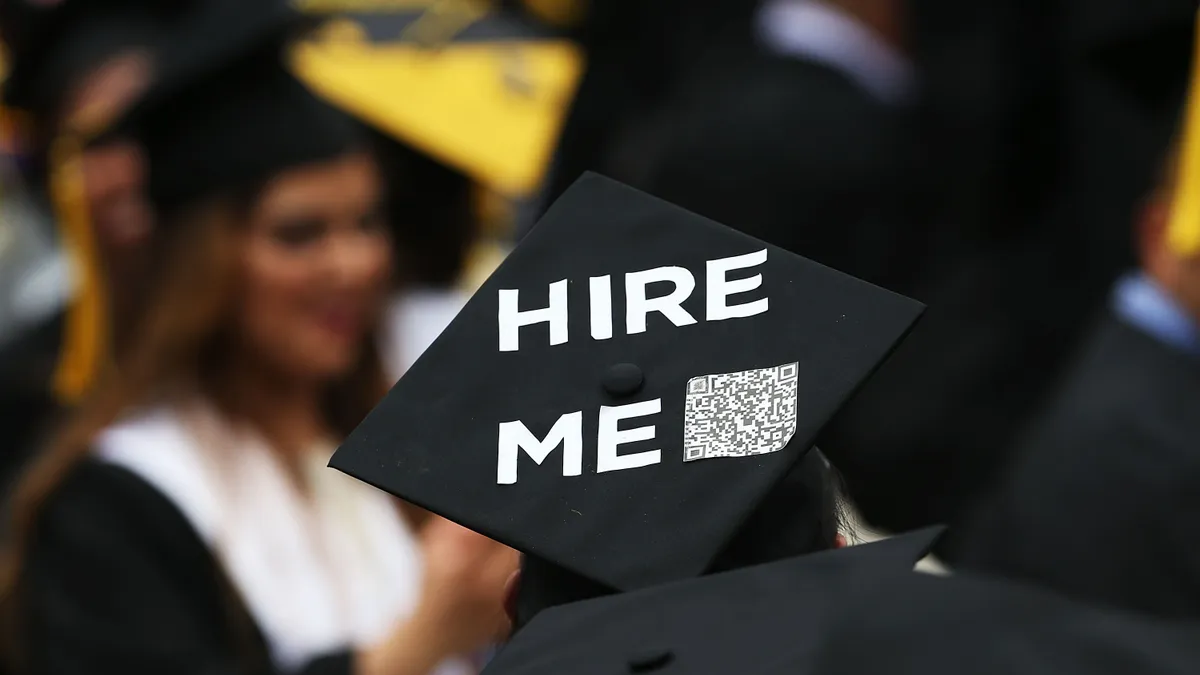Dive Brief:
- Individuals with bachelor's degrees will earn $400,000 more in their lifetimes than those with just a high school diploma, according to a new report from the College Board.
- College graduates who enrolled at age 18 and earned a degree in four years "can expect to earn enough relative to a high school graduate" by age 33 to make up for paying tuition and other costs and for being out of the workforce while in college, the report notes.
- The study comes as polls show some Americans are skeptical of the value of higher education and whether a traditional degree is worth the investment.
Dive Insight:
Although some recent surveys have indicated that potential students and their families are questioning whether a four-year degree is affordable or worth the cost, the College Board's report, which is updated every three years, points to some payoffs.
Lifetime earnings for college graduates with bachelor's degrees far exceed those with just a high school diploma. The estimated median lifetime earnings (in 2017 dollars) for a bachelor's degree recipient at age 64 was more than $1.2 million. High school graduates earned far less — just over $800,000, according to the College Board's research. The data assumes adults are working full-time after college and accounts for money borrowed to cover tuition, fees and supplies.
College graduates who only have bachelor's degrees and work full-time took home a median of $24,900 more than high school graduates did in 2018, the research shows. Those age 25 or older with a four-year degree earned a median $65,400 in 2018. That year, individuals with just a high school diploma earned a median $40,500.
"A higher education is an investment that pays significant dividends over the course of a lifetime — even for students who accumulate some debt to obtain a degree," Jennifer Ma, senior policy research scientist at College Board and a co-author of the report, said in a statement.
Bachelor's degree-earners generally have more stability in their job prospects, as well. The unemployment rate for individuals age 25 and older who hold at least a bachelor's degree has steadily been about half of that for high school graduates in the same age range, according to the report.
In 2018, the unemployment rate for people with at least a four-year degree was about 2%, compared to 4% for people with only a high school diploma.
Still, barriers remain for young adults interested in attending college, especially those from low-income backgrounds. Significant gaps in affordability exist at state flagship institutions for all but the wealthiest students, a recent report from the Institute for Higher Education Policy found. These universities tend to be the most selective and offer the most intensive academic experience of all public colleges. With state governments investing less in higher ed in the past decade or so, more of the costs of attending college have fallen to students and their families.
In all but three states, low-income students would need to pay at least $3,000 to attend a public college, even accounting for federal aid, grants and scholarships and working 10 hours per week in a minimum wage job, according to a report last month from the Education Trust.











